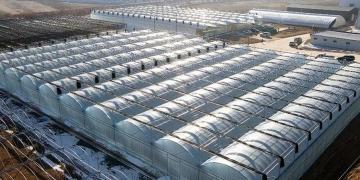Alemania: STUDY: ‘CULTIVATION OF FRESH POTATOES CAUSES AROUND 50% FEWER GREENHOUSE GAS EMISSIONS’
The potato industry is one that heavily discusses sustainability. The German Potato Trade Association e.V. (DKHV) and the Union of the German Potato Industry e.V.

(UNIKA) have recently commissioned a literature search on the CO2 footprint in potato production and processing. The Georg-August University of Göttingen’s Prof. Dr. Elke Pawelzik and Dr. Marcel Naumann lead the study’s development team.
“It is important for us to classify, i.e. in which areas we are already well positioned in terms of CO2 emissions. The literature research should also show potential for savings,” UNIKA/DKHV managing director, Dr. Sebastean Schwarz, spoke about the motivations for the work.
A substantial amount of papers were assessed. The evaluation mostly comprised study results with a cradle-to-gate system boundary that was conducted using the systemic approach of life cycle analysis (LCA). Dr. Naumann outlines the difficulties the study faced as a result of the various research methodologies.
“The variety of publications made the comparison difficult, but our evaluations show that the cultivation of fresh potatoes causes around 50% fewer greenhouse gas emissions compared to the types of grain examined. This also applies to the comparison of fresh potatoes with processed potato products, as every further processing step affects the CO2 balance,” Dr. Naumann added.
Potential actions to further lower CO2 emissions during potato farming, such as targeted and limited use of nitrogen fertilizers, were also found in the literature search. However, the scientists stress that there is no one-size-fits-all approach to lowering emissions because the CO2 footprint is dependent on numerous factors, including growing circumstances.
The intricate connections between potato production and environmental effects are better understood as a result of this research.
Fuente: https://www.potatobusiness.com/trends-news/study-cultivation-of-fresh-potatoes-causes-around-50-fewer-greenhouse-gas-emissions/




